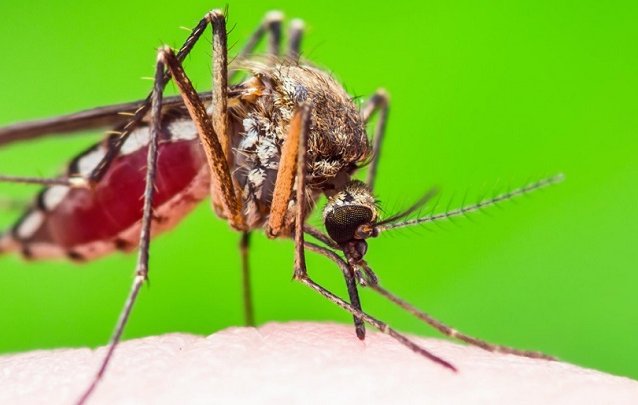Kampala, Uganda | Uganda is exploring an ambitious scientific solution to combat malaria, one of the country’s most persistent public health challenges. The disease, responsible for 30–40% of outpatient visits in 2023 according to the World Health Organization, continues to claim at least 16 lives daily. Children under five and pregnant women remain the most vulnerable.
For years, Uganda managed to curb malaria through mosquito net distribution and indoor insecticide spraying. However, since 2020, the country has faced a resurgence, with climate change fueling a spike in mosquito populations.
Now, scientists at the Uganda Virus Research Institute (UVRI) are investigating a groundbreaking “gene drive” technology a method that involves releasing genetically modified male mosquitoes into the wild. These mosquitoes carry genes that reduce fertility among their species, potentially shrinking mosquito populations over time.
“Gene drives could complement existing strategies by targeting the root cause the mosquito population itself,” says Dr. Jonathan Kayondo, Head of Entomology at UVRI.
Gene-drive technology is hailed as revolutionary because it is self-sustaining. However, experts caution that once released, the modified genes cannot be recalled, raising ethical and ecological concerns. As of September 2025, Uganda’s experiments remain confined to laboratory settings, pending regulatory approval.
Dr. Birungi Krystal, an entomologist with Target Malaria, explains that her team is working to genetically modify mosquitoes so they lay far fewer eggs. “Normally, a mosquito can lay up to 300 eggs at a time,” she says. “Our goal is to reduce that number to around 10 or fewer.”
Despite the potential, maintaining the genetic modification within wild populations remains a challenge. Gene drives attempt to ensure that altered traits are inherited more than 50% of the time a process that could, over generations, significantly reduce malaria-carrying mosquito numbers.
Uganda now ranks third globally in malaria cases, with more than 15,000 deaths recorded in 2023. Health experts say rising temperatures have accelerated mosquito breeding and altered their behavior with mosquitoes now biting both day and night.
“We are witnessing a change in mosquito behavior and population growth due to warmer conditions,” notes Dr. Herbert Nabaasa, Health Commissioner at the Ministry of Health. “Managing mosquito fertility and biting rates through science could be a game changer.”
While the technology offers hope, environmental scientists warn of potential unintended consequences. Opakrwoth Caysie, an environmental scientist from Makerere University, says mosquitoes play a crucial ecological role in nutrient recycling and supporting wetland ecosystems.
“Eliminating a mosquito genus like Anopheles could trigger ripple effects across ecosystems,” he explains, warning that predator populations and biodiversity could be affected.
Burkina Faso became the first African country to release genetically modified mosquitoes in 2019 under a pilot by Target Malaria. Though the test caused no visible harm, it ignited controversy and raised issues around community consent and misinformation. A subsequent release in 2025 was suspended after public backlash fueled by disinformation campaigns.
In Uganda, Target Malaria continues to engage local communities through public meetings and visual learning tools to increase understanding of gene-drive research. Yet activists caution that many rural residents may struggle to grasp the long-term implications, questioning the validity of “informed consent.”
Meanwhile, Uganda’s National Biosafety Committee is finalizing guidelines to regulate genetically modified organisms, including gene drives. Without comprehensive biosafety laws, however, the path toward environmental release remains uncertain.
For now, the genetically modified mosquitoes remain securely contained in UVRI’s laboratories in Entebbe. But the debate has moved far beyond science touching on issues of sovereignty, ethics, and the delicate balance between innovation and environmental preservation.
As Uganda weighs its next move, the world watches closely. The question remains: Can the country harness cutting-edge science to end malaria without crossing a line that nature cannot undo?
